-
 Gabon striker Boupendza dies after 11th floor fall
Gabon striker Boupendza dies after 11th floor fall
-
UK top court rules definition of 'woman' based on sex at birth

-
 PSG keep Champions League bid alive, despite old ghosts reappearing
PSG keep Champions League bid alive, despite old ghosts reappearing
-
Stocks retreat as US hits Nvidia chip export to China

-
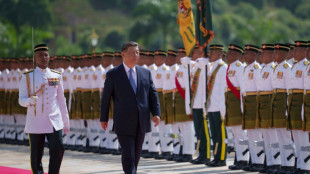 China's Xi meets Malaysian leaders in diplomatic charm offensive
China's Xi meets Malaysian leaders in diplomatic charm offensive
-
Israel says no humanitarian aid will enter Gaza
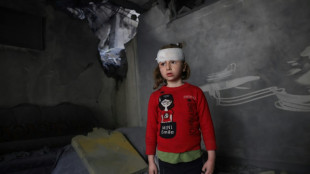
-
 Anxiety clouds Easter for West Bank Christians
Anxiety clouds Easter for West Bank Christians
-
Pocket watch found on Titanic victim to go on sale in UK

-
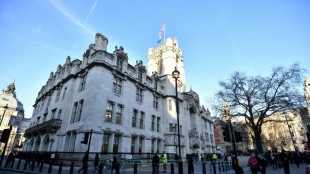 UK top court rules definition of 'a woman' based on sex at birth
UK top court rules definition of 'a woman' based on sex at birth
-
All Black Ioane to join Leinster on six-month 'sabbatical'

-
 Barca suffer morale blow in Dortmund amid quadruple hunt
Barca suffer morale blow in Dortmund amid quadruple hunt
-
China tells Trump to 'stop threatening and blackmailing'
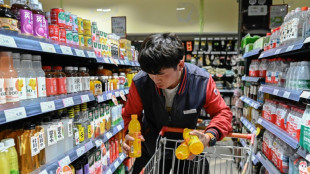
-
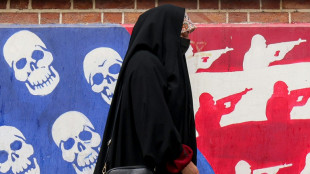 Iran FM says uranium enrichment 'non-negotiable' after Trump envoy urged halt
Iran FM says uranium enrichment 'non-negotiable' after Trump envoy urged halt
-
Automakers hold their breath on Trump's erratic US tariffs

-
 Cycling fan admits throwing bottle at Van der Poel was 'stupid'
Cycling fan admits throwing bottle at Van der Poel was 'stupid'
-
Troubled Red Bull search for path back to fast lane

-
 China's forecast-beating growth belies storm clouds ahead: analysts
China's forecast-beating growth belies storm clouds ahead: analysts
-
ASML CEO sees growing economic 'uncertainty' from tariffs

-
 Heineken beer sales dip, tariffs add to uncertainty
Heineken beer sales dip, tariffs add to uncertainty
-
Rehab centre for Russian veterans from Ukraine fills up
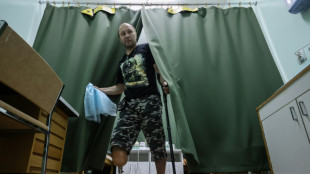
-
 Dutch flower industry grasps thorny pesticide issue
Dutch flower industry grasps thorny pesticide issue
-
Solar boom counters power shortages in Niger

-
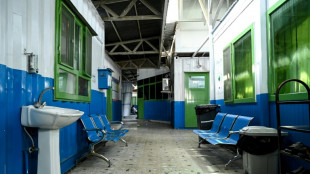 Malnourished children in Afghanistan at 'high risk of dying' without US aid
Malnourished children in Afghanistan at 'high risk of dying' without US aid
-
Skating comeback queen Liu says she can get even better for Olympics

-
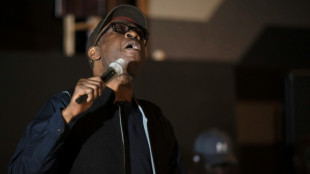 'Let's rock': world music icon Youssou N'Dour back on the road
'Let's rock': world music icon Youssou N'Dour back on the road
-
Mackerel and missiles: EU-UK defence deal snags on fish

-
 Istanbul's Hagia Sophia prepares for next big quake
Istanbul's Hagia Sophia prepares for next big quake
-
'Magician' Chahal casts spell with IPL heroics

-
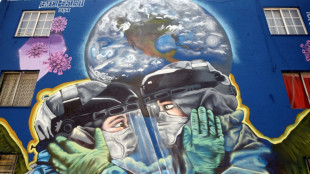 WHO countries strike landmark agreement on tackling future pandemics
WHO countries strike landmark agreement on tackling future pandemics
-
Kerr salutes Harvard defiance over Trump after Warriors win

-
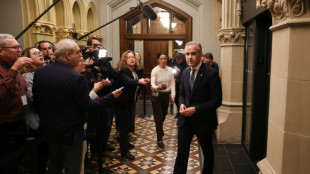 Canada party leaders hold high-stakes debate two weeks from vote
Canada party leaders hold high-stakes debate two weeks from vote
-
As war grinds on, Ukraine's seniors suffer

-
 ASML CEO sees 'increased macro uncertainty' from tariffs
ASML CEO sees 'increased macro uncertainty' from tariffs
-
Pope leaves faithful guessing over Easter appearances

-
 Butler, 'Batman' Curry shine as Warriors down Grizzlies to reach playoffs
Butler, 'Batman' Curry shine as Warriors down Grizzlies to reach playoffs
-
Skating 'Quad God' Malinin ready for Olympic favourite tag

-
 Toppmoeller has ascendant Frankfurt challenging their limits
Toppmoeller has ascendant Frankfurt challenging their limits
-
Cambodia's Chinese casino city bets big on Beijing

-
 Vespa love affair: Indonesians turn vintage scooters electric
Vespa love affair: Indonesians turn vintage scooters electric
-
Europe seeks to break its US tech addiction

-
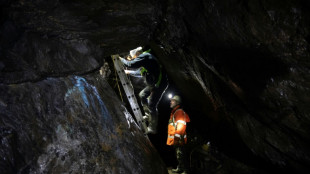 Long-abandoned Welsh mine revived as gold prices soar
Long-abandoned Welsh mine revived as gold prices soar
-
UK's top court to rule on how to define a 'woman'

-
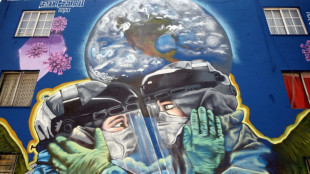 WHO countries reach landmark agreement on tackling future pandemics
WHO countries reach landmark agreement on tackling future pandemics
-
Stocks struggle again as Nvidia chip curb warning pops calm

-
 China's economy beats forecasts ahead of Trump's 'Liberation Day'
China's economy beats forecasts ahead of Trump's 'Liberation Day'
-
China's economy beat forecasts in first quarter ahead of Trump's 'Liberation Day'
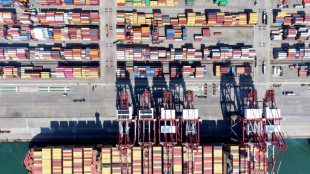
-
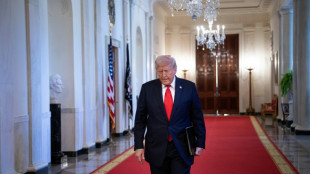 Trump orders critical minerals probe that may bring new tariffs
Trump orders critical minerals probe that may bring new tariffs
-
Onana faces date with destiny as Man Utd chase Lyon win

-
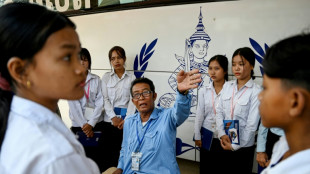 Lessons in horror with Cambodia's Khmer Rouge tribunal
Lessons in horror with Cambodia's Khmer Rouge tribunal
-
Pandemic agreement: key points

South Korea: Yoon Suk Yeol shocks Nation
South Korea in Crisis: President Yoon Suk Yeol's Coup Shakes the Nation
In a stunning and unprecedented move, South Korean President Yoon Suk Yeol has attempted to seize absolute power, plunging the nation into political chaos. On the night of December 3, President Yoon declared martial law, suspended the National Assembly, and deployed soldiers to surround its premises, effectively paralysing the country’s democratic institutions. The world is watching in shock as one of Asia’s most stable democracies faces an uncertain future.
The Coup: A Nation in Shock
The events unfolded rapidly on a cold December night, leaving South Koreans and the international community reeling. President Yoon cited national security threats and alleged internal dissent as justification for his actions, but critics are calling it a blatant power grab. By suspending the National Assembly—South Korea’s legislative body—Yoon has undermined the very foundation of the nation’s democratic system.
Eyewitnesses reported heavy military presence in the capital, Seoul, as soldiers and armoured vehicles took positions near government buildings. Communication networks were temporarily disrupted, adding to the confusion. The swift and calculated nature of the coup suggests months of planning, raising questions about who within the government and military may have supported the move.
Immediate Reactions: Outrage and Resistance
The coup has sparked widespread outrage among South Koreans. Protesters took to the streets in major cities, waving banners and chanting slogans calling for Yoon’s resignation. Opposition leaders condemned the move as a betrayal of the democratic values South Korea has upheld since its transition from military rule in the 1980s.
International leaders, including the US-President Joe Biden who is still in office until 20 January 2025 and Japanese Prime Minister Fumio Kishida, have expressed grave concern. The United Nations has called for an emergency session to address the situation, while human rights organisations warn of potential crackdowns on dissent.
What Led to This Crisis?
President Yoon’s tenure has been marked by polarising leadership and a growing divide between conservatives and progressives. Critics argue that his administration’s inability to address pressing economic challenges, such as rising housing costs and youth unemployment, eroded public trust. Yoon’s approval ratings had plummeted in recent months, and his administration faced mounting scrutiny over alleged corruption scandals.
While Yoon’s justification for the coup includes vague references to national security threats, experts believe the move was motivated by a desire to cling to power amidst growing opposition. Some speculate that internal disagreements within his party and the prospect of impeachment may have pushed Yoon to take drastic action.
The Role of the Military
The military’s involvement in the coup is particularly troubling for a country with a history of authoritarian rule. South Korea transitioned to a democracy in 1987 after decades of military dictatorship, and the armed forces have since remained apolitical. Yoon’s ability to mobilise the military raises questions about divisions within the armed forces and whether dissenting voices exist among its ranks.
Should significant portions of the military oppose Yoon’s actions, the possibility of a counter-coup or internal conflict could further destabilise the nation.
Implications for South Korea’s Future
The attempted coup casts a shadow over South Korea’s hard-earned reputation as a thriving democracy. Its political stability and economic strength have made it a key player in the global arena, but this crisis threatens to derail decades of progress.
Domestically, the suspension of democratic institutions could lead to widespread unrest, civil disobedience, and a protracted power struggle. Economically, investor confidence is likely to plummet, jeopardising South Korea’s status as a global technology and trade hub.
On the international stage, the coup could strain alliances, particularly with the United States, which has long regarded South Korea as a crucial ally in countering North Korea and maintaining regional stability. China and North Korea, meanwhile, may view the situation as an opportunity to exploit South Korea’s weakened state.
The Road Ahead: Democracy or Dictatorship?
The fate of South Korea now hinges on the response of its citizens, political leaders, and international allies. Opposition parties have called for immediate action to restore democracy, including mass protests and legal challenges. Meanwhile, world leaders face the delicate task of pressuring Yoon’s government while avoiding escalation.
The unfolding crisis serves as a stark reminder that even the most established democracies are not immune to authoritarian tendencies. For South Korea, the road ahead is fraught with uncertainty, but its people have shown resilience before. Whether the nation emerges from this crisis as a stronger democracy or succumbs to authoritarian rule will shape its future—and its place in the world—for generations to come.

The Queen: From Churchill to Yeltsin and Tito to Trudeau

Queen Elizabeth II dies aged 96

Ukraine: Kherson, nuclear inspectors and Russian army

Why Lithuania didn't join the tributes to Gorbachev

Germany: River Rhine water levels could fall to critical low



